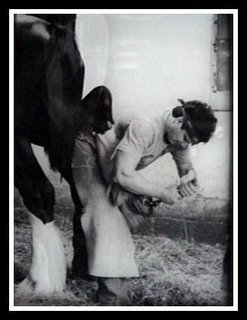Fetus Not a Person
On July 15, 2001, Tayshea Aiwohi gave birth to her son, Treyson. Two days later he died from high levels of methamphetamine and amphetamine in his system. The mother admits to using drugs three days before giving birth and on the day of delivery. She was prosecuted for manslaughter.
From the court decision:
The appeals reached the Supreme Court of Hawaii which ruled her not guilty:
The court sites several cases in which this ruling is consistent with other rulings. The court rightly states:
Only politicians in the legislature could concoct such a convoluted concept of who is and is not a person. As the law is written, a third party can damage a fetus and be found liable. A mother can kill or cause irreparable damage to the fetus without sanction.
The abortion lobby has cowed politicians into making such nonsense law. Only the legislature can fix such a mess. Only pressure from constituents will give them the backbone to do so. To rely on the courts to fix this is to ask the court to do what conservatives often complain is not the roll of the courts.
A normal person who's commonsense has not been damaged by political ambition can see right through the tortured logic here. One cannot clim an individual right that the exercise of comes at the expense of another's life. To consider a fetus a non-person harkens back to the arguments in support of slavery. Curious the Democratic party defended both.
The issue before the US Supreme Court is parental notification. Although this is an important issue, the person hood of the unborn is of paramount importance. Politicians aren't leaders, they just run to the front of the parade faster than anyone else. They march to the drum of public opinion. We who value life must press for the legislature to codify the person hood of all living humans including the unborn.
What are we praying for?
More Basil
Stop the ACLU
The Florida Masochist
From the court decision:
Aiwohi gave birth to Treyson Aiwohi on July 15, 2001. Tragically, Treyson died two days later on July 17, 2001. Susan Siu, the Chief Investigator for the Department of the Medical Examiner, testified at the grand jury proceeding that Aiwohi admitted to smoking crystal methamphetamine on July 12, 13, 14, and 15. Dr. William Goodhue, First Deputy Medical Examiner of the City and County of Honolulu, testified at the grand jury proceeding that the cause of Treyson's death was the toxic effects of methamphetamine. Aiwohi was thus indicted for manslaughter on October 9, 2003, for recklessly causing the death of her newborn son, Treyson Aiwohi.
At the time of the incident in question, Aiwohi was already the mother of four children. Aiwohi gave birth to her fifth child, Treyson, on July 15, 2001. At the time of Treyson's birth, Aiwohi already had a long-standing and well-documented history of substance abuse for which she had received treatment from various programs. Although Aiwohi was tested for substance abuse in various intervals, it appears that she was not tested in the weeks just prior to Treyson's delivery. After delivery, Aiwohi was allowed to breast feed the baby several times on July 15 and 16. The hospital discharged Aiwohi and Treyson on July 16, 2001 at approximately 7:00 p.m., and Aiwohi reported breast feeding the baby again at approximately 1:30 a.m. The family subsequently went to sleep.
Aiwohi subsequently reported that her husband woke her up and told her that Treyson wasn't breathing and that they needed to call 911. An ambulance then arrived, taking Treyson to the hospital. That morning, July 17, 2001, at approximately 6:32 a.m., Treyson Aiwohi was pronounced dead at Castle Medical Center.
The completed autopsy report revealed that the baby's death was caused by drugs. The autopsy report was prepared by the First Deputy Medical Examiner of the City and County of Honolulu, Dr. William Goodhue, who testified that the level of methamphetamine and amphetamine in Treyson's body was consistent with exclusive prenatal exposure through the mother. Dr. Goodhue also testified that there was no evidence of disease or disorder, or any evidence of accidental death by suffocation caused by an adult sleeping in the same bed as the baby.
The appeals reached the Supreme Court of Hawaii which ruled her not guilty:
In the present case Aiwohi simply could not have disregarded a substantial and unjustifiable risk that the requisite circumstance existed, because the requisite circumstance did not exist at the time she engaged in what the prosecution claims was culpable conduct. More specifically, there was no other "person" at the relevant time because a fetus is not a "person" within the plain meaning of the statute, as discussed infra. The mere fact that the fetus would later be Treyson, another person, does not alter the conclusion. The plain language of the statute clearly requires that the actor disregard a substantial and unjustifiable risk that such circumstances presently exist, not that such circumstances might later exist. (14)
Consequently, speaking in terms of attendant circumstances, we hold, in the context of offenses against persons set forth in HRS chapter 707, that the defendant's proscribed conduct must be committed at a time when the victim is within the class contemplated by the legislature because the specified class is an attendant circumstance. As applied to reckless manslaughter, the actor must disregard a substantial and unjustifiable risk that the attendant circumstance exists, and therefore, a fortiori, the attendant circumstance must exist at the time of the conduct's commission. Accordingly, in the present case, the proscribed conduct must have been committed at a time when Treyson qualified as a "person," defined by the Hawaii Penal Code as "[a] human being who has been born and is alive." HRS § 707-700. (15)
The court sites several cases in which this ruling is consistent with other rulings. The court rightly states:
" HRS § 1-15. In the present case, there is nothing in the legislative history indicating that the legislature intended to include fetuses within the definition of the term "person." In the absence of clear statutory language, and with no legislative guidance vis-à-vis legislative history, the applicable doctrine is the rule of lenity.
Finally, it is important to clarify that we are dealing strictly with an issue of statutory interpretation in the present appeal. Although we recognize that there may be significant policy implications and social ramifications surrounding the present issue, it is well established that the legislature is best suited to assess such considerations.
Only politicians in the legislature could concoct such a convoluted concept of who is and is not a person. As the law is written, a third party can damage a fetus and be found liable. A mother can kill or cause irreparable damage to the fetus without sanction.
The abortion lobby has cowed politicians into making such nonsense law. Only the legislature can fix such a mess. Only pressure from constituents will give them the backbone to do so. To rely on the courts to fix this is to ask the court to do what conservatives often complain is not the roll of the courts.
A normal person who's commonsense has not been damaged by political ambition can see right through the tortured logic here. One cannot clim an individual right that the exercise of comes at the expense of another's life. To consider a fetus a non-person harkens back to the arguments in support of slavery. Curious the Democratic party defended both.
The issue before the US Supreme Court is parental notification. Although this is an important issue, the person hood of the unborn is of paramount importance. Politicians aren't leaders, they just run to the front of the parade faster than anyone else. They march to the drum of public opinion. We who value life must press for the legislature to codify the person hood of all living humans including the unborn.
What are we praying for?
More Basil
Stop the ACLU
The Florida Masochist








 BlogHop.com
BlogHop.com







2 Comments:
|Sorry I just fixed the link to What are we prying for.
Since a mother can kill her baby at anytime before birth but a third party (unless he has an MD behind his name) can't, the legislature should take the approach as if the baby had been killed in utero by a third party in a violent crime. They should prosecute the dealer who sold her the drugs.
Post a Comment
<< Home